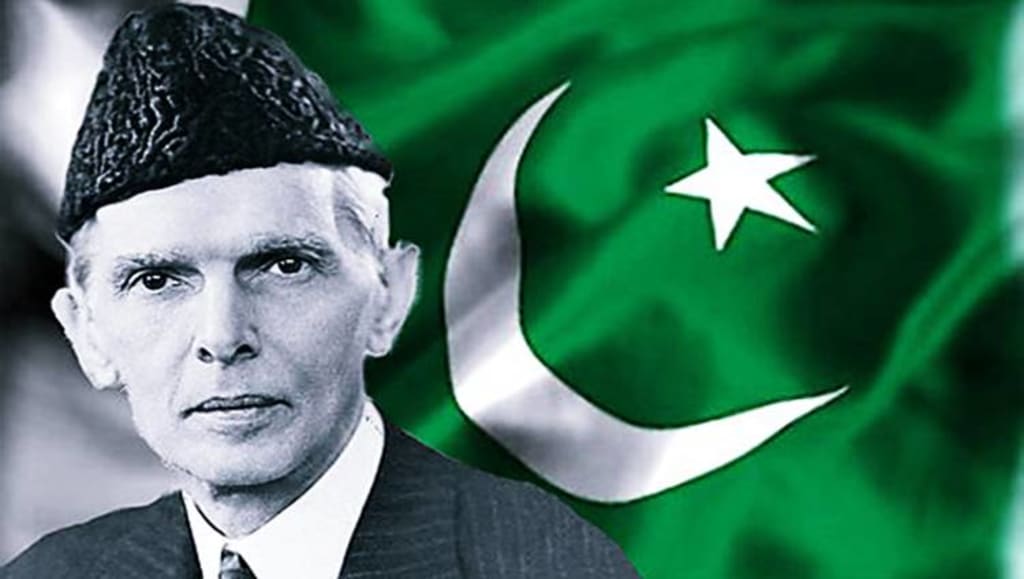
Quaid-e-Azam Muhammad Ali Jinnah, also known as the "Great Leader," was a prominent political figure and the founder of Pakistan. He played a pivotal role in the creation of an independent Muslim state on the Indian subcontinent. Jinnah's vision, determination, and leadership were instrumental in shaping the destiny of millions and establishing Pakistan as a sovereign nation. This article will delve into the life, achievements, and legacy of Quaid-e-Azam, providing an overview of his extraordinary journey.
Muhammad Ali Jinnah was born on December 25, 1876, in Karachi, which was then a part of British India. He hailed from a wealthy merchant family and received his early education in Karachi before moving to England to pursue higher studies. Jinnah studied law at Lincoln's Inn, London, and was called to the bar in 1896. He developed a profound understanding of constitutional law, which later became the cornerstone of his political career.
Upon his return to India, Jinnah embarked on a successful legal career in Bombay (now Mumbai) and quickly gained recognition as a skilled barrister. However, he soon realized that his true calling lay in politics, where he could work towards safeguarding the rights and interests of the Muslims of India, who were a minority under British rule.
Jinnah joined the Indian National Congress, the leading political party at the time, and emerged as a prominent leader advocating Hindu-Muslim unity. However, as the Congress gradually adopted policies that neglected the concerns of the Muslim community, Jinnah became disillusioned and eventually left the party in 1920. He realized that the Muslim minority needed a separate political platform to protect their rights and aspirations.
In 1934, Jinnah assumed the leadership of the All India Muslim League, a political organization representing the Muslims of India. He tirelessly worked to mobilize the Muslim masses, emphasizing their distinct identity and the need for a separate homeland where they could freely practice their religion and preserve their cultural heritage.
Jinnah's political acumen, strategic thinking, and unwavering commitment to the cause of Muslim rights earned him the title of "Quaid-e-Azam" (meaning "Great Leader"). He tirelessly campaigned for the demand of a separate Muslim state, known as Pakistan. Jinnah's eloquence and persuasive skills enabled him to rally support from Muslims across India, uniting them under a single banner.
The struggle for Pakistan was not without challenges. Jinnah faced strong opposition from various quarters, including the British colonial authorities and the Hindu nationalist movement. However, his determination and unwavering resolve to achieve the goal of an independent Muslim state never wavered. Through countless speeches, negotiations, and political maneuvering, Jinnah ultimately succeeded in persuading the British and other stakeholders to accept the partition of India and the creation of Pakistan.
On August 14, 1947, Pakistan emerged as a sovereign nation, and Jinnah became its first Governor-General. He tirelessly worked to establish a framework for the new country, laying the foundation for its political, economic, and social development. Jinnah envisioned Pakistan as a democratic and inclusive state, where all citizens would enjoy equal rights regardless of their religion, caste, or creed.
Unfortunately, Jinnah's tenure as the leader of Pakistan was short-lived. He passed away on September 11, 1948, leaving behind a legacy of courage, vision, and perseverance. Despite the challenges faced during the early years of the country's existence, his principles and ideals continue to shape Pakistan's identity as a democratic and independent nation.
Quaid-e-Azam Muhammad Ali Jinnah's contributions to the creation of Pakistan and his unwavering commitment to the principles of freedom, equality, and justice have made him an enduring symbol of inspiration for millions. His vision for a united and prosperous Pakistan continues to guide the nation as it strives to overcome challenges and realize its full potential.
In conclusion, Quaid-e-Azam Muhammad Ali Jinnah was a visionary leader who played a pivotal role in the creation of Pakistan. His political acumen, leadership, and unwavering commitment to the rights of the Muslim community led to the establishment of an independent nation where they could freely practice their religion and preserve their cultural heritage. Jinnah's legacy as the founding father of Pakistan remains a source of inspiration for generations to come.
Thank you for reading my page
One likea nd subscribe






Comments
There are no comments for this story
Be the first to respond and start the conversation.